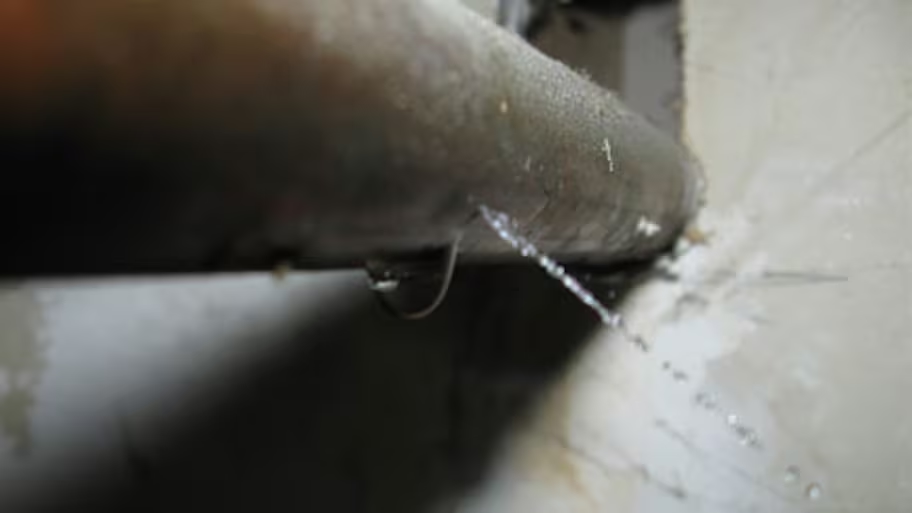Understanding the Six Most Common Water Leak Causes in Your Home
Understanding the Six Most Common Water Leak Causes in Your Home
Blog Article
Are you currently in search of advise about How to detect water leaks in your home?
/GettyImages-957479686-f3d2e677f2e749fc98aa207b474c5c1f.jpg)
Leakages not only cause waste of water but can additionally cause unnecessary damage to your home as well as promote unwanted natural development. By looking and also recognizing for daily situations that trigger leaks, you can secure your residence from future leaks and unneeded damage.
Instantaneous temperature level changes.
Severe temperature adjustments in our pipes can trigger them to expand as well as get suddenly. This development and contraction might trigger splits in the pipes, specifically if the temperature are below cold.
Rusty water systems
As time goes by, your plumbing system ages and deterioration such as rust might begin eating away the pipes. This could be the reason for staining or bending on your water pipes. This requires an evaluation with your plumber immediately. Consider replacing the pipelines considering that they are at a greater risk of rust than the more recent versions if our plumbing system is old.
Defective Pipe Joints
The point at which your pipes link is often the weakest web link in the waterline. Pipeline joints can wear away over time, resulting in water leaks. Sadly, the majority of pipe joints are not quickly noticeable. If you have noisy pipelines that make ticking or banging sounds, specifically when the warm water is activated, your pipeline joints are most likely under a great deal of stress. It is a good idea to have your plumber evaluate your system annually.
Intruding roots
Many water leaks begin outside the home rather than inside it. You could observe wet spots or sinkholes in your lawn, and that could indicate that tree roots are attacking water lines creating water to seep out.
Poor Water Connectors
Sometimes, a leak can be caused by loosened hose pipes and pipelines that supply your devices. Generally, shifting is what creates the loose water Links. You may find when it comes to a washing maker, a pipe may spring a leakage because of drinking during the spin cycle. In case of a water links leakage, you might observe water running directly from the supply line or pools around your appliances.
Clogged Drains
Blocked drains pipes may be annoying as well as inconveniencing, but they can often wind up causing an overflow causing burst pipes. Maintain eliminating any kind of materials that might drop your drains that might obstruct them to avoid such troubles.
All the above are root causes of leaks but not all water leaks arise from plumbing leakages; some leakages might come from roofing system leakages. All leakages need to be repaired right away to stay clear of water damages.
Leaks not just create waste of water but can also trigger unneeded damages to your residence and advertise undesirable organic growth. By comprehending as well as looking for everyday scenarios that create leakages, you can protect your home from future leaks as well as unnecessary damage. Today, we will certainly look at six leak causes that may be triggering your pipes to leak.
At times, a leakage can be triggered by loose hose pipes as well as pipes that supply your appliances. In situation of a water connections leak, you might see water running straight from the supply line or pools around your devices.
How To Check For Water Leak In Your Home
How To Check for Leaks
The average household's leaks can account for nearly 10,000 gallons of water wasted every year and ten percent of homes have leaks that waste 90 gallons or more per day. Common types of leaks found in the home are worn toilet flappers, dripping faucets, and other leaking valves. These types of leaks are often easy to fix, requiring only a few tools and hardware that can pay for themselves in water savings. Fixing easily corrected household water leaks can save homeowners about 10 percent on their water bills.
To check for leaks in your home, you first need to determine whether you're wasting water and then identify the source of the leak. Here are some tips for finding leaks:
Take a look at your water usage during a colder month, such as January or February. If a family of four exceeds 12,000 gallons per month, there are serious leaks.
Check your water meter before and after a two-hour period when no water is being used. If the meter changes at all, you probably have a leak.
Identify toilet leaks by placing a drop of food coloring in the toilet tank. If any color shows up in the bowl after 10 minutes, you have a leak. (Be sure to flush immediately after the experiment to avoid staining the tank.)
Examine faucet gaskets and pipe fittings for any water on the outside of the pipe to check for surface leaks.
Undetected water leaks can happen without the home or business owner even realizing. If you suspect a water leak, but not able to find the source. It is time to contact a professional water leak detection service, The Leak Doctor.
How To Find a Water Leak In Your Home
https://www.leakdoctor.com/blog/How-To-Check-For-Water-Leak-In-Your-Home_AE197.html

I ran across that blog entry about Most Common Causes of Leaky Pipes when perusing the search engines. Remember to set aside a second to distribute this page if you enjoyed it. Many thanks for your time. Visit us again soon.
Call Today Report this page